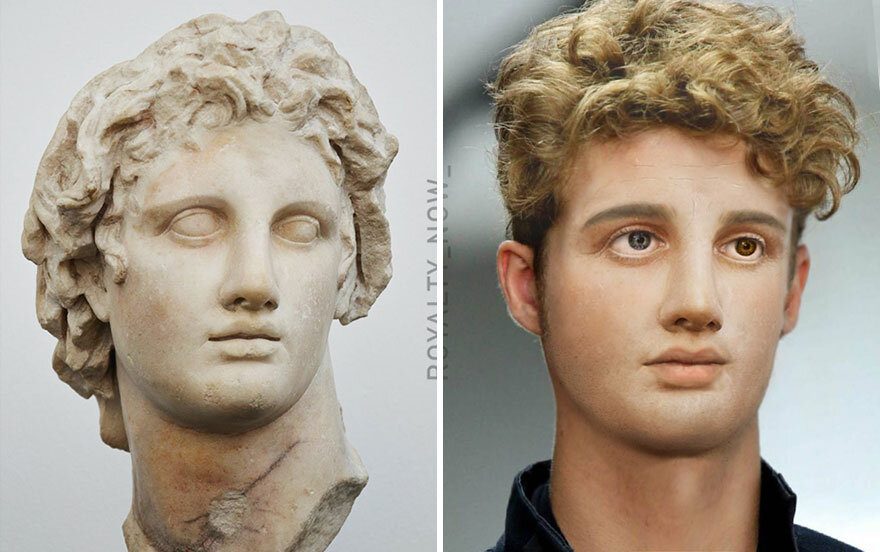Alexander the Great and Julius Caesar were two renowned conquerors in history who achieved greatness through military prowess and political savvy. Alexander was born in Macedonia and conquered Persia and India through strategic alliances and decisive battles, while Caesar solidified his power through successful military campaigns in Gaul, Egypt, and North Africa. Both leaders exhibited astute political leadership, with Alexander establishing a complex administrative system and encouraging the spread of Greek culture, and Caesar centralizing power in Rome through administrative reforms and infrastructure projects. Their legacies still impact modern civilization, reshaping the ancient world and influencing later conquerors and the establishment of the Roman Empire.
Alexander the Great vs. Julius Caesar: The Conquerors Who Ruled the Ancient World
Alexander the Great and Julius Caesar are two of the most well-known conquerors in history. Their military conquests and strategic leadership shaped the ancient world and laid the groundwork for modern civilization. Despite their different backgrounds and approaches to leadership, both Alexander and Caesar achieved greatness through their military prowess and political savvy. In this article, we will compare and contrast Alexander the Great and Julius Caesar, examining their unique contributions to history and their legacy on the world.
Background and Rise to Power
Alexander the Great was born in 356 BC in Macedonia, the son of King Philip II. He was educated by Aristotle and trained in military tactics and leadership from a young age. Upon his father’s assassination in 336 BC, Alexander became king at the age of 20 and set out to expand the empire his father had begun.
Julius Caesar was born in 100 BC in Rome, into a patrician family. He was known as a charismatic leader and brilliant orator, and rose to power through his political prowess. Caesar was appointed governor of Gaul in 58 BC and conducted a series of successful military campaigns that solidified his power.
Military Conquests
Both Alexander and Caesar were renowned for their military conquests and strategic leadership. Alexander is best known for his conquest of Persia and India, which he accomplished through a series of decisive battles and strategic alliances. He conquered Egypt, founded Alexandria, and established a vast empire that stretched from Greece to India. His military tactics were revolutionary, and he is considered one of the greatest military minds in history.
Julius Caesar, on the other hand, is best known for his conquest of Gaul, which he achieved through a series of successful campaigns from 58-50 BC. He also conducted a series of successful military campaigns in Egypt and North Africa, and famously crossed the Rubicon in 49 BC, igniting a civil war that ultimately led to his rise to power in Rome. Caesar is considered a master of strategy and military tactics, and his victories set the stage for the Roman Empire’s expansion and dominance.
Political Leadership
While both Alexander and Caesar were skilled military leaders, they also exhibited astute political leadership that set them apart. Alexander established a vast empire that was governed by a complex administrative system. He allowed the conquered peoples to retain their own cultures and religions, and he himself adopted Persian customs and dress. He founded cities throughout his empire and encouraged the spread of Greek culture and ideas.
Julius Caesar, on the other hand, consolidated power in Rome by reforming the political system and abolishing the traditional oligarchy. He extended citizenship to more people and reorganized the administrative system in a way that centralized power in his own hands. He also established a system of public works that included the building of roads, aqueducts, and other infrastructure projects.
Legacy
The legacies of Alexander the Great and Julius Caesar are still felt today. Alexander’s conquests spread Greek culture and ideas throughout the known world, and his legacy can be seen in the cultural and architectural achievements he left behind, such as the city of Alexandria and the Library of Alexandria. His military tactics and leadership style also influenced later conquerors, such as Napoleon Bonaparte.
Julius Caesar’s legacy is equally impressive. His political and military achievements set the stage for the establishment of the Roman Empire, which would shape the course of Western civilization for centuries to come. His administrative reforms and infrastructure projects also helped to lay the groundwork for the modern bureaucratic state.
Conclusion
Alexander the Great and Julius Caesar were two of the most remarkable figures in ancient history. Their military conquests and political leadership reshaped the ancient world and left a lasting legacy that can still be felt today. Despite their different backgrounds and approaches to leadership, both Alexander and Caesar achieved greatness through their military prowess and political savvy. Their stories are timeless examples of how a single individual can change the course of history through sheer force of will.
